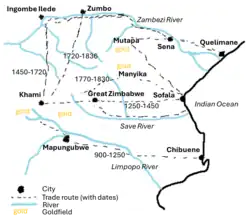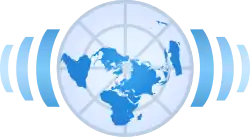Portal:Africa

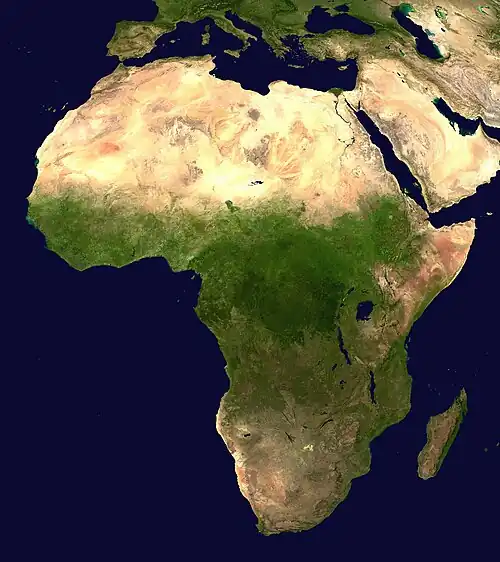
.svg.png)
Africa is the world's second-largest and second-most populous continent after Asia. At about 30.3 million km2 (11.7 million square miles) including adjacent islands, it covers 20% of Earth's land area and 6% of its total surface area. With nearly 1.4 billion people as of 2021, it accounts for about 18% of the world's human population. Africa's population is the youngest among all the continents; the median age in 2012 was 19.7, when the worldwide median age was 30.4. Based on 2024 projections, Africa's population will exceed 3.8 billion people by 2100. Africa is the least wealthy inhabited continent per capita and second-least wealthy by total wealth, ahead of Oceania. Scholars have attributed this to different factors including geography, climate, corruption, colonialism, the Cold War, and neocolonialism. Despite this low concentration of wealth, recent economic expansion and a large and young population make Africa an important economic market in the broader global context, and Africa has a large quantity of natural resources.
The continent includes Madagascar and various archipelagos. It contains 54 fully recognised sovereign states, eight cities and islands that are part of non-African states, and two de facto independent states with limited or no recognition. This count does not include Malta and Sicily, which are geologically part of the African continent. Algeria is Africa's largest country by area, and Nigeria is its largest by population. African nations cooperate through the establishment of the African Union, which is headquartered in Addis Ababa.
Africa is highly biodiverse; it is the continent with the largest number of megafauna species, as it was least affected by the extinction of the Pleistocene megafauna. However, Africa is also heavily affected by a wide range of environmental issues, including desertification, deforestation, water scarcity, and pollution. These entrenched environmental concerns are expected to worsen as climate change impacts Africa. The UN Intergovernmental Panel on Climate Change has identified Africa as the continent most vulnerable to climate change.
The history of Africa is long, complex, and varied, and has often been under-appreciated by the global historical community. In African societies the oral word is revered, and they have generally recorded their history via oral tradition, which has led anthropologists to term them "oral civilisations", contrasted with "literate civilisations" which pride the written word. African culture is rich and diverse both within and between the continent's regions, encompassing art, cuisine, music and dance, religion, and dress. (Full article...)
Selected article –
The Fall of Kampala, also known as the Liberation of Kampala (Swahili: Kukombolewa kwa Kampala), was a battle during the Uganda–Tanzania War in 1979, in which the combined forces of Tanzania and the Uganda National Liberation Front (UNLF) attacked and captured the Ugandan capital, Kampala. As a result, Ugandan President Idi Amin was deposed, his forces were scattered, and a UNLF government was installed.
Amin had seized power in Uganda in 1971 and established a brutal dictatorship. Seven years later he attempted to invade Tanzania to the south. Tanzania repulsed the assault and launched a counter-attack into Ugandan territory. After routing the Ugandans and their Libyan allies in Entebbe, the Tanzanians revised their existing offensive designs for Kampala. The plans called for the 208th Brigade to advance from the south, spearheaded by Lieutenant Colonel Ben Msuya's 800-strong 19th Battalion, which was to secure the centre of the city. The 207th Brigade and a UNLF battalion were to attack from the west, while the 201st Brigade was to establish roadblocks to the north to prevent Ugandan units from withdrawing. An eastern corridor was left open to allow the Libyans to evacuate to Jinja and fly out of the country. Amin prepared for the defence of Kampala but fled through the gap. (Full article...)
Featured pictures –
Did you know (auto-generated) -

- ... that Michigan defensive end Eyabi Okie, ranked number 3 in the 2018 college football recruiting class, changed his surname from "Anoma" to recognize his mother who lives in Africa?
- ... that Mackay Davashe wrote "Lakutshona Ilanga", the English version of which, sung by Miriam Makeba, became the first South African piece to chart on the Billboard Hot 100?
- ... that a South African library was named after American economist Elizabeth Ellis Hoyt in recognition of her work in Africa?
- ... that an NAACP chapter successfully protested the appointment of an African bishop to a role at Dartmouth College?
- ... that Freetown, Alabama, was founded by free and formerly enslaved African Americans in Alabama, whose church, built in 1929, burned down in 2022?
- ... that in South Africa's genocide case against Israel, the International Court of Justice ordered Israel to "punish the direct and public incitement to commit genocide" against Palestinians in Gaza?
Categories

Selected biography –
Professor Thomas Risley Odhiambo (February 4, 1931 – May 26, 2003) was a Kenyan entomologist and environmental activist who directed research and scientific development in Africa. (Full article...)
Selected country –
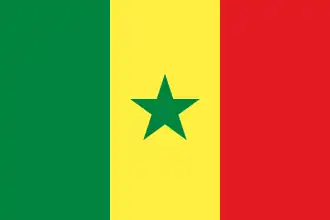 |
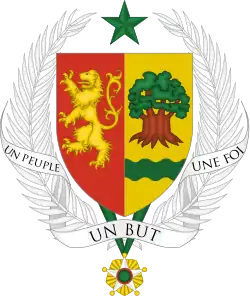 |
||
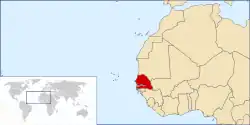
| |||
Senegal (French: le Sénégal), officially the Republic of Senegal, is a country south of the Sénégal River in western Africa. Senegal is bounded by the Atlantic Ocean to the west, Mauritania to the north, Mali to the east, and Guinea and Guinea-Bissau to the south. The Republic of The Gambia lies almost entirely within Senegal, surrounded on the north, east and south; from its western coast, Gambia's territory follows the Gambia River more than 300 kilometers (190 mi) inland.
The Senegalese landscape consists mainly of the rolling sandy plains of the western Sahel which rise to foothills in the southeast. Here is also found Senegal's highest point, an otherwise unnamed feature near Nepen Diakha at 581 m (1906 ft). The northern border is formed by the Senegal River; other rivers include the Gambia and Casamance Rivers. The capital Dakar lies on the Cap-Vert peninsula, the westernmost point of continental Africa. The local climate is tropical with well-defined dry and humid seasons that result from northeast winter winds and southwest summer winds. (Read more...)
Selected city –
Tripoli, historically known as Tripoli-of-the-West, is the capital and largest city of Libya, with a population of about 1.317 million people in 2021. It is located in the northwest of Libya on the edge of the desert, on a point of rocky land projecting into the Mediterranean Sea and forming a bay. It includes the port of Tripoli and the country's largest commercial and manufacturing center. It is also the site of the University of Tripoli.
Tripoli was founded in the 7th century BC by the Phoenicians, who gave it the Libyco-Berber name Oyat (Punic: 𐤅𐤉𐤏𐤕, romanized: Wyʿt), before passing into the hands of the Greek rulers of Cyrenaica as Oea (Ancient Greek: Ὀία, romanized: Oía). Due to the city's long history, there are many sites of archeological significance in Tripoli. Tripoli may also refer to the sha'biyah (top-level administrative division in the Libyan system), the Tripoli District. (Full article...)
In the news
- 19 August 2025 – Gaza war
- Hamas positively receives an Egyptian-Qatari mediated 60-day ceasefire proposal, which is rejected by Israeli defense minister Israel Katz. (The New York Times)
- 19 August 2025 – Gaza war, Sudanese civil war
- The United Nations reports that a record 383 aid workers were killed in the 2024 calendar year, up by 31% from 2023, including 181 who were killed in Gaza and 60 in Sudan. There have already been 265 aid workers killed so far this year. (DW)
- 19 August 2025 – Nigerian bandit conflict
- At least 27 people are killed and several others are injured in a mass shooting by bandits at a mosque in Unguwan Mantau community, Katsina State, Nigeria. (Reuters)
- 19 August 2025 – Constitutional crisis in Somalia
- Former Somali presidents Abdiqasim Salad Hassan, Sharif Sheikh Ahmed and Mohamed Abdullahi Mohamed denounce the administration of Hassan Sheikh Mohamud for its management of public land in Somalia's capital Mogadishu, accusing it of violating constitutional safeguards and forcibly displacing impoverished families. (Hiiraan Online)
- 17 August 2025 –
- More than 40 people are reported missing and ten others are rescued when a boat carrying 50 people to a popular market capsizes on the Sokoto River near Goronyo, Sokoto State, Nigeria. (Reuters) (AP)
- 16 August 2025 – Kivu conflict
- At least 30 people are killed by suspected Islamic State-aligned Allied Democratic Forces rebels in Bapere, North Kivu, Democratic Republic of the Congo. (AP)
Updated: 4:06, 21 August 2025
General images -
Africa topics
More did you know –
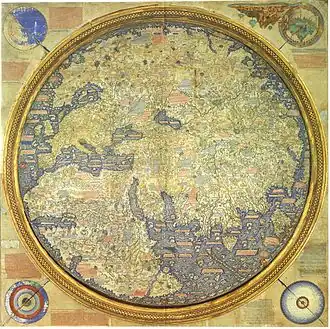
- ...that the 1459 Fra Mauro map (pictured) reports that "a junk from India" rounded the Cape of Good Hope in 1420, around 70 years before the navigations of Vasco da Gama?
- ...that the 1998 Sudan famine was caused by human rights abuses in the midst of the Second Sudanese Civil War?
- ...that a smokie is a West African delicacy made by blowtorching the carcass of a sheep or goat without removing its fleece?
- ...that Anne-Marie Nzié, a Cameroonian bikutsi singer, dedicated the song Liberté to President Paul Biya and his party, the Cameroon People's Democratic Movement?
Related portals
Major Religions in Africa
North Africa
West Africa
Central Africa
East Africa
Southern Africa
Associated Wikimedia
The following Wikimedia Foundation sister projects provide more on this subject:
-
Commons
Free media repository -
Wikibooks
Free textbooks and manuals -
Wikidata
Free knowledge base -
Wikinews
Free-content news -
Wikiquote
Collection of quotations -
Wikisource
Free-content library -
Wikispecies
Directory of species -
Wikiversity
Free learning tools -
Wikivoyage
Free travel guide -
Wiktionary
Dictionary and thesaurus
More portals
-
 List of all portals
List of all portals -

-

-

-
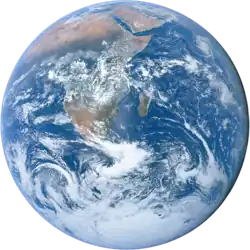
-

-

-

-

-

-
 Random portal
Random portal -
 WikiProject Portals
WikiProject Portals
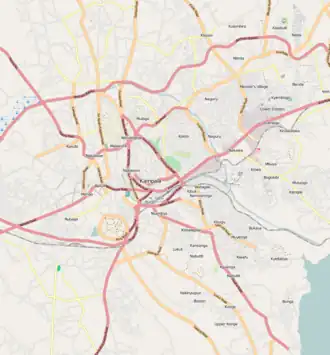
.jpg)

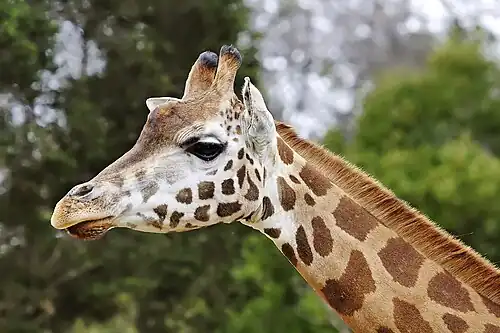
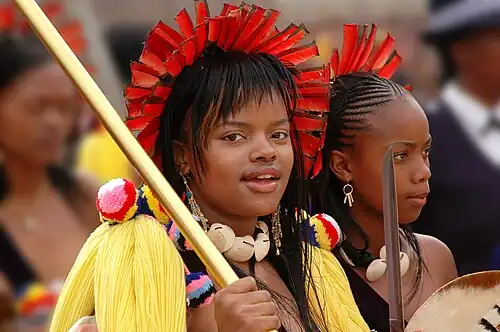
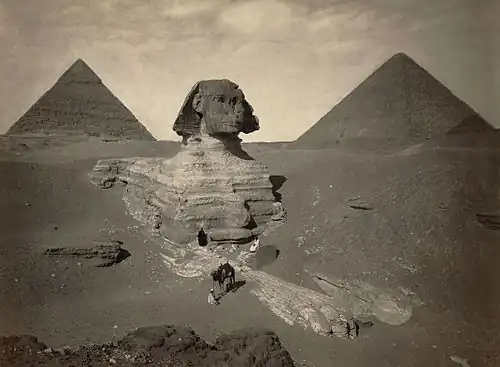
_adult_male.jpg)
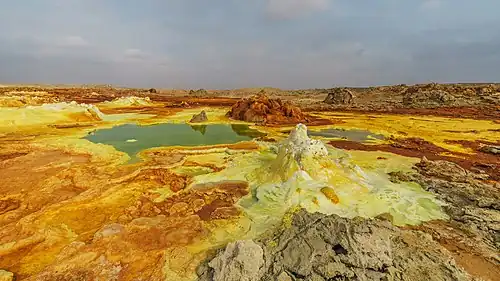
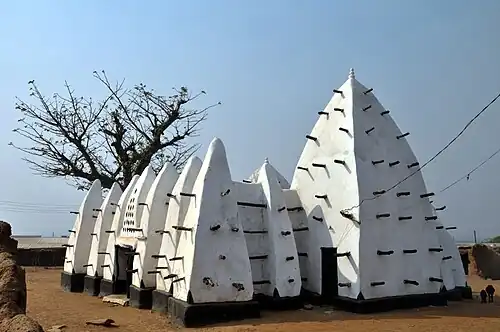
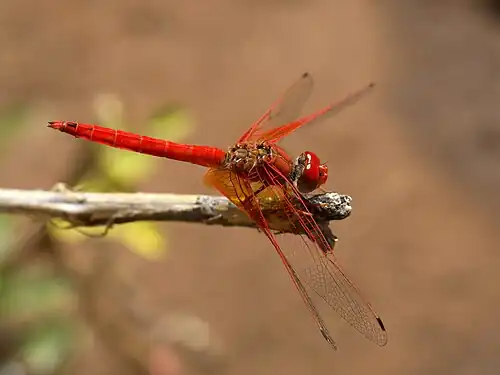
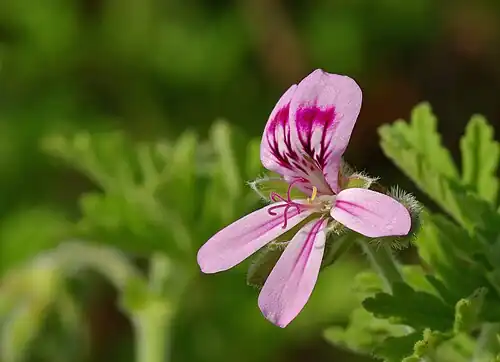
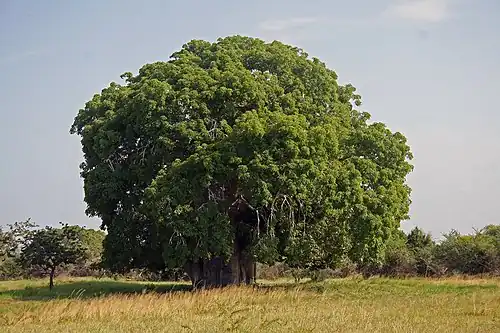
.jpg)
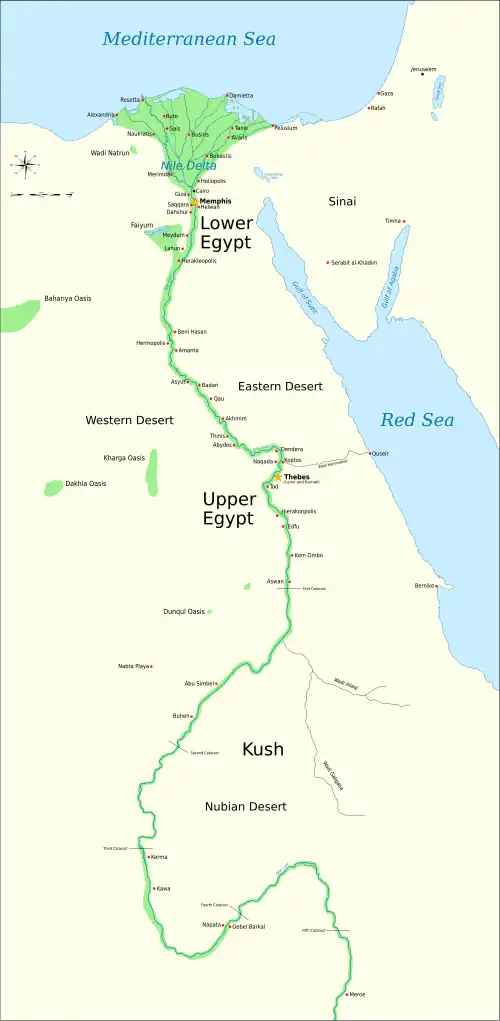
.jpg)

.jpg)
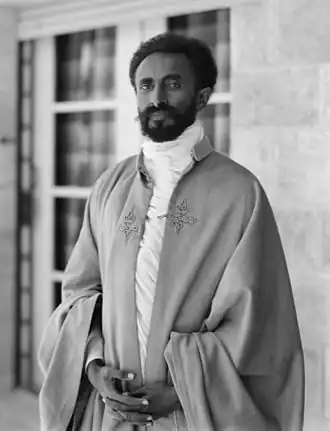
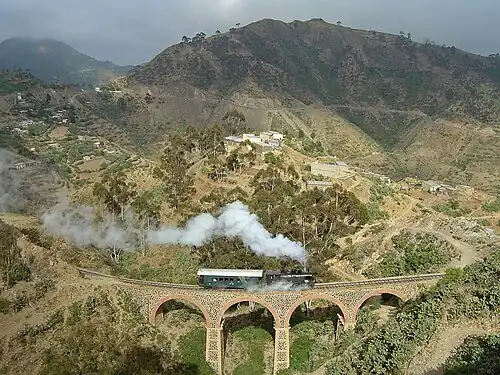
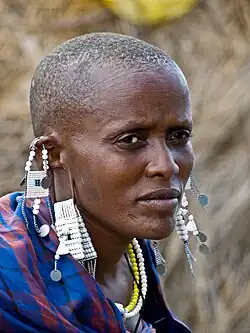
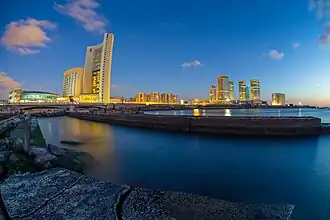
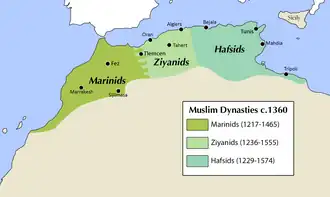
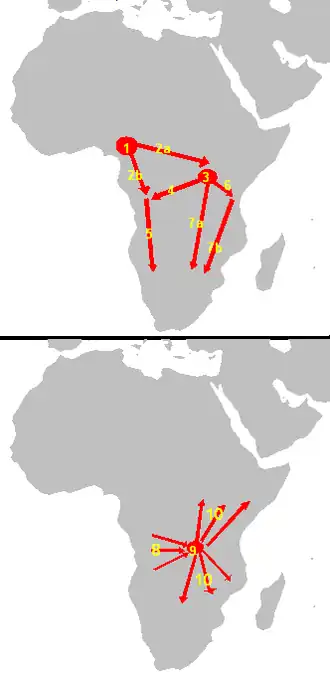
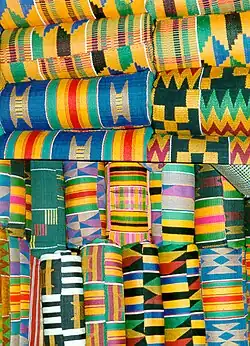
_5.png)
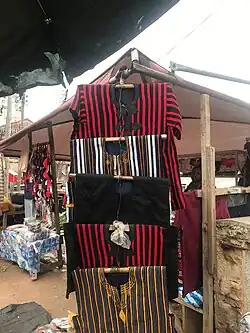

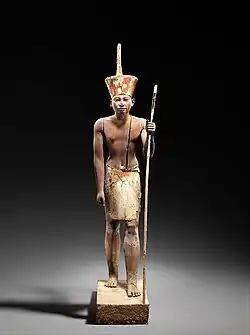
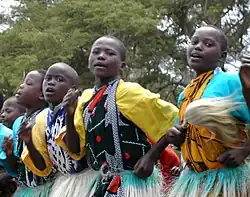
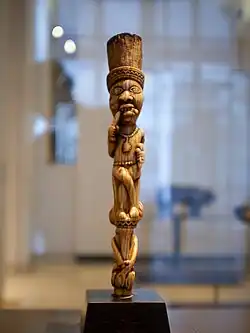
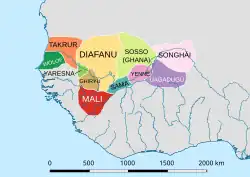



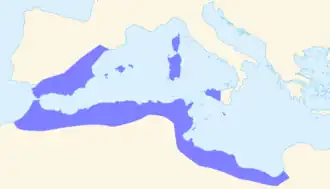
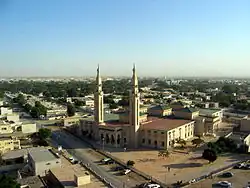
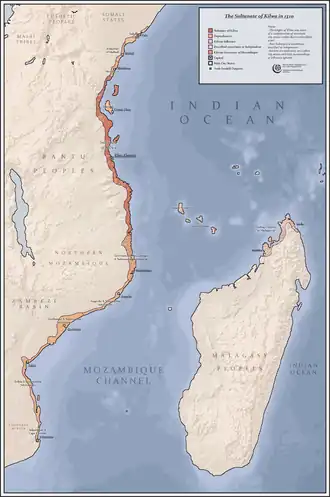
.jpg)
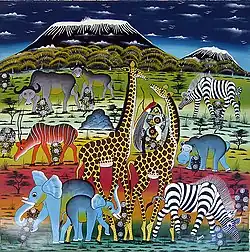


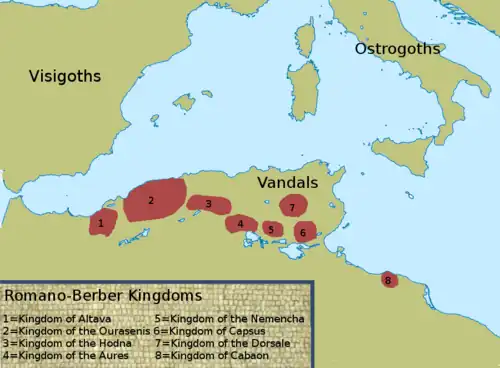
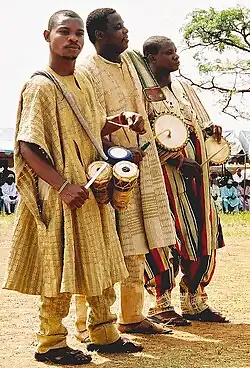

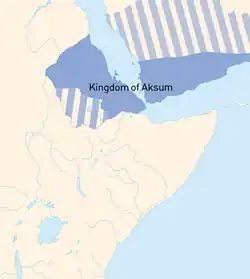
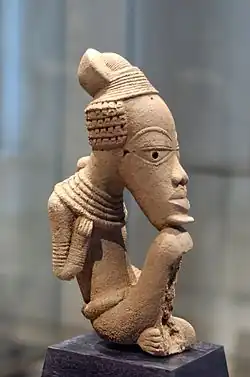
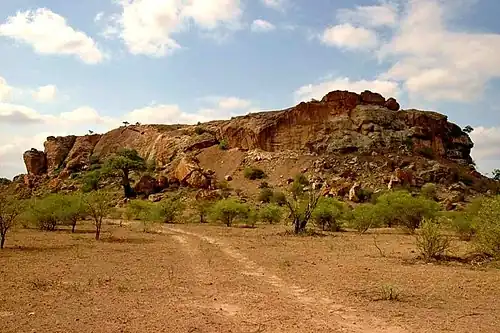


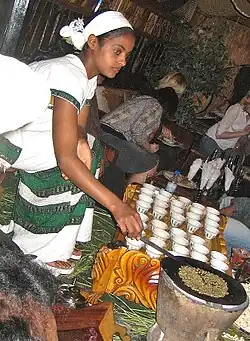
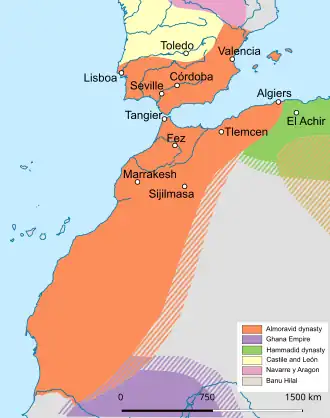
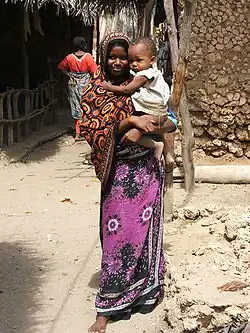
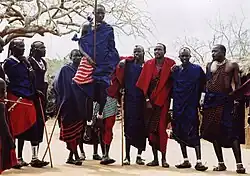
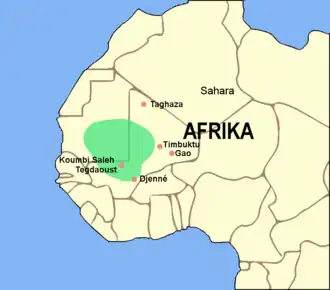
.jpg)
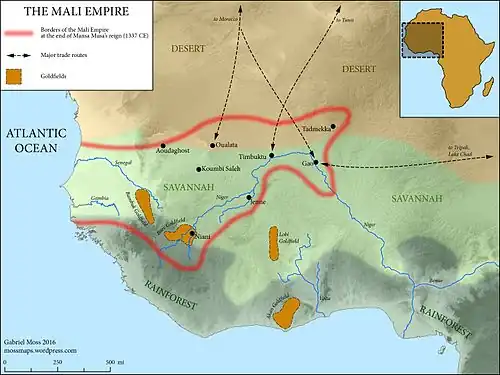
.jpg)

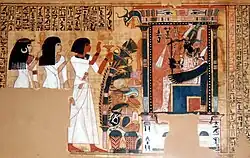



.svg.png)
